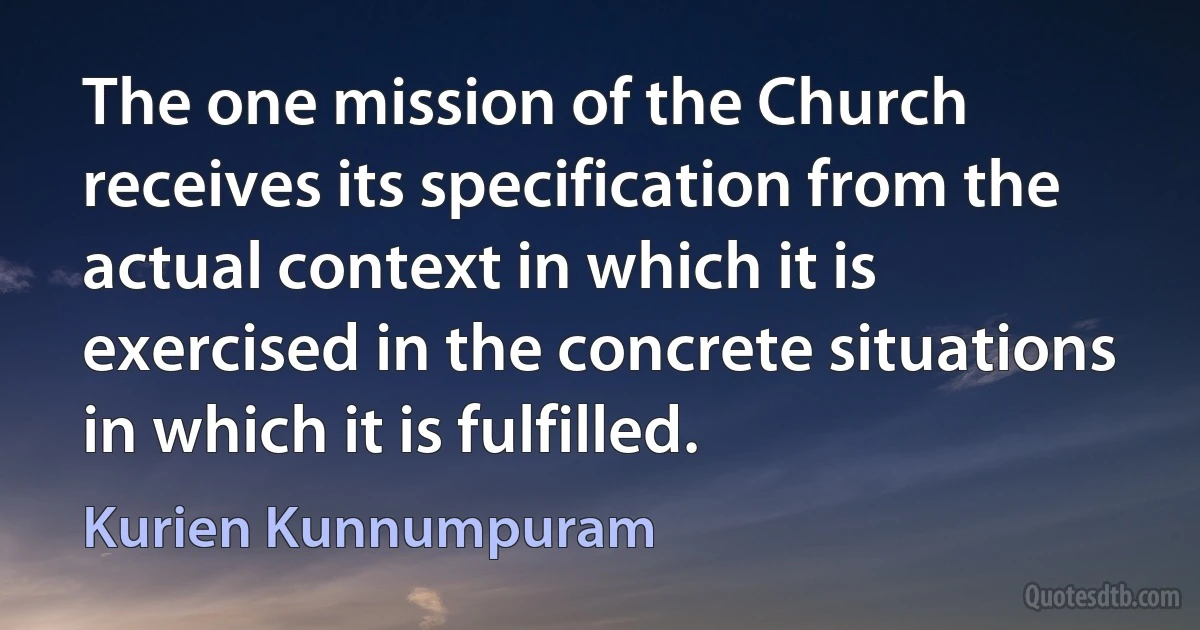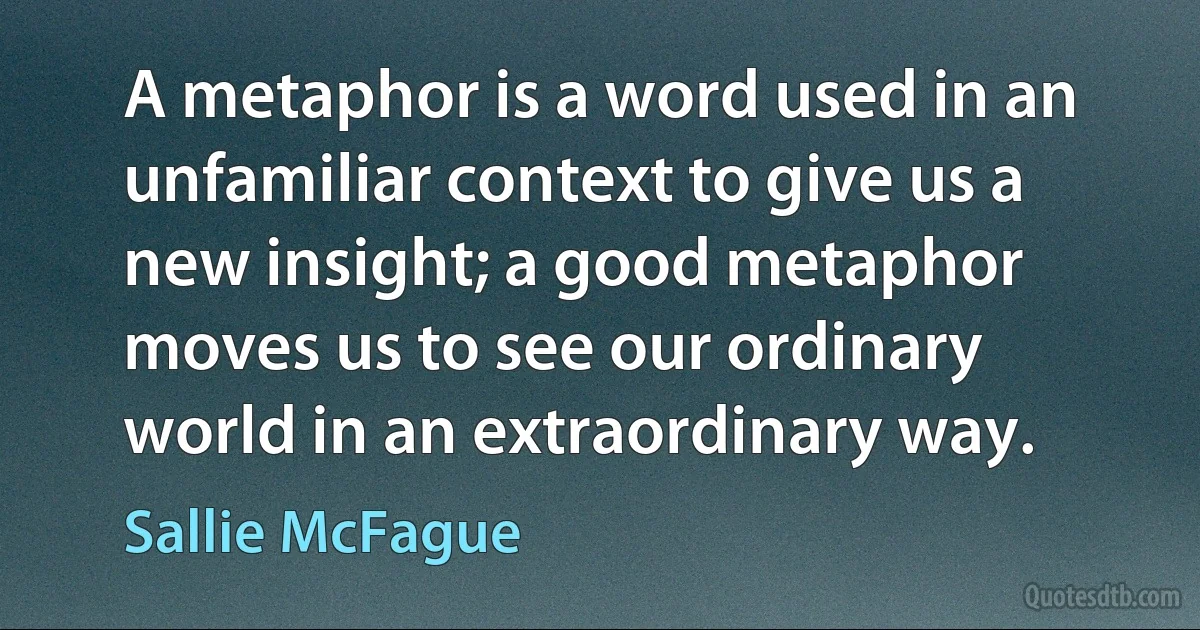Context Quotes - page 23
Football fetish: "We all inhabit this busy mart called America, but are united by nothing meaningful at all. The football fetish in America has intensified in the context of a country whose inhabitants agree on little else than the importance of The Game. Consequently, come playoff time, we come together fleetingly and superficially, to make a religion out of our respective professional football teams."

Ilana Mercer
Statistics are silly unless given context. If you have one foot in fire, the other in ice, can we legitimately say that, on average, you're warm? Hardly. Probabilities, in this case the chance that any one of us will die-by-Muslim, are statistically insignificant-unless this happens to you or to yours, to me or mine.

Ilana Mercer
Since it is always the same person whose mind thinks, wills, and judges, the autonomous nature of these activities has created great difficulties. Reason's inability to move the will, plus the fact that thinking can only "understand” what is past what neither remove it nor "rejuvenate it” ... have led to the various doctrines asserting the mind's impotence and the force of the irrational, in brief to Hume's famous dictum that "Reason is and ought only to be the slave of the passions,” that is, to a rather simple-minded reversal of the Platonic notion of reason's uncontested rulership in the household of the soul. What is so remarkable in all these theories and doctrines is their implicit monism, the claim that behind the obvious multiplicity of the world's appearances and, even more pertinently to our context, behind the obvious plurality of man's faculties and abilities, there must exist a oneness - the old hen pan, "the all is one”.

Hannah Arendt
Hypostatized into a ritual pattern, Marxian theory becomes ideology. But its content and function distinguish it from classical forms of ideology; it is not false consciousness, but a rather consciousness of falsehood, a falsehood which is corrected in the context of the higher truth represented by the objective historical interest.

Herbert Marcuse
The tools of scholarly criticism-stylistics, iconographical analysis, historical context, and formal analysis in the last 50 years remain as trusted now as ever. Yet they explain with diminishing clarity what has happened after 1800, and almost nothing of what has happened in sculpture in the last 60 years.

Jack Burnham
I realised fairly early that the 'wisdom of the ages' - whether from 3000 years ago or yesterday - often was simply and perfectly adaptable to the context of the football arena, and immensely valuable. From my regular morning habit of reading, I would write down any wise, pragmatic and smart quotes and ideas that struck me, and that I felt could be of use in coaching.

Jack Gibson
Dad, by example and through his teaching, had helped me understand something that has been with me since that time: When something we learn contradicts Scripture, we need to first of all go to the Bible and study the words in context very carefully. If, after doing this, we are sure the Bible still clearly means what we had previously gleaned, then we need to question the ideas that contradict the Bible's words. Then, even if we can't find an explanation that shows where the secular idea is in error, we need to continue to search and wait for the answer. Even if we don't find answers in our lifetime, we cannot reinterpret Scripture. To do so would be to make man's ideas infallible and God's Word fallible. This would put us on a course of compromise and unbelief through the rest of Scripture, and Dad often warned us of this "slippery slope."

Ken Ham
I was assigned to the Waffen-SS but was never involved in any crime. Besides, I always felt the need to write about my experiences in a larger context one day. This has only developed recently, now that I have overcome my inner aversion to writing an autobiography in the first place, specifically one having to do with my younger years.

Günter Grass
Part One... discusses at length the opposing ways of approaching and dealing with life: co-operating or competing. It traces the competitive spirit back to the animal kingdom and shows its gradual replacement by co-operation as humanity advances. Many of the problems of the modern world are seen in this context and co-operation is shown as the way, in line with our soul's intent, to solve them.

Benjamin Creme
American Hinduism is a minority religion in America (...) that deserves the same treatment that is already being given to other American minority religions – such as Native American, Buddhist or Islamic – by the Academy. The subaltern studies depiction of Hinduism as being the dominant religion of India must, therefore, be questioned in the American context.

Rajiv Malhotra
He then goes a step further and briefly imposes a Freudian reading on the text, a reading outdated and crude even in the current Western context of cultural criticism. He says the depiction of 'the other' in Ramayana can be understood as a projection of the unfulfilled sexual desires of traditional Indians. .... The motive of applying a totally alien framework, viz., the Freudian one, to a traditional Hindu text is something that is questionable.

Rajiv Malhotra
The greatest lesson I've learned from it is that context is irrelevant when you hurt somebody. I felt justified in saying what I was saying, because of the context, because of the conversation, but the words I used offended a lot of people and some people I care about, and those words were wrong...

Reggie Yates
Film and television essentially feel the same when you're doing it, because it's the same technical approach. All the homework is the same. The homework for each medium is all similar, but the gratification in a live theater context is much higher, because it's immediate. It's far more dangerous, because there are no retakes. It's electric, it's an actual chemical transaction that occurs between you and the audience. Whatever energy you're throwing out to them they throw it right back to you, and it kind of feeds on itself in this vacuum...

Benjamin Bratt
Rat and behavioral psychology ... mirror the actual inhumanity of reality. Rat psychology is human psychology where a total society has trained human beings to be creatures of stimulus and response, i. e. rats. "Insofar as the hardening of society has reduced men more and more to objects,” wrote Adorno, "methods which convey this are no sacrilege. ... The method serves freedom in that it wordlessly testifies to the prevailing unfreedom.” Or, as Adorno and Horkheimer wrote in another context: "The usual objection that empirical social research is too mechanical, too crude, and too unspiritual [ungeistig] shifts the responsibility from that which science is investigating to science itself.” ... The idealistic misconception of ... behavioral methods ... shifts the evil from the social conditions that coerce men and women into standardized roles onto the social science that is merely registering these conditions.

Russell Jacoby



